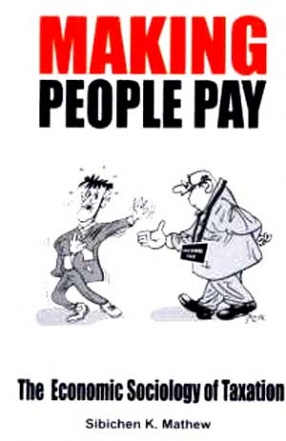Can a complex subject like tax compliance be handled in such a simple manner? Sibichen K. Mathew is successful in presenting his in-depth study on what makes people pay taxes or what prevents them from paying in a very interesting style. The author takes us through the history, the economics and the politics of taxation to dissect the interconnected issues related to tax evasion and tax enforcement. He forcefully argues that the economic models are unable to fully explain the behaviour of taxpayers. For, if the tax laws are complex, the human mind is much more complex to yield to the economic models. His arguments are supported by data on attitudes, perceptions and experience of taxpayers, many of whom declare themselves to be tax evaders. The author also analyzes the sociological and economic causes and consequences of tax evasion and tax enforcement in the global context. He, rightly, argues that taxation has larger sociological and political dimensions. He has brought in an array of arguments to conclusively show that paying taxes is not only matter of money. It is much more than that. A host of factors impinge on the decision to pay taxes. Therefore he underscores the need for an interdisciplinary approach to taxation. The insights gained from these incisive analyses have enormous implications for policy makers as well as tax administrators all over the world.
The author has also briefly referred to the challenges thrown up by the integrated world economy. The ease with which capital can be moved across nations and the convenience of transferring goods and services in quick time have rendered the national boundaries meaningless. The author points out that the fears of erosion in tax collection in some nations are not totally unfounded. The author also refers to the tax competition among nations. The solution offered is scaling up of international cooperation on a significant scale. This book will certainly be of great interest to critics of economy and tax. The taxpayers, the tax practitioners and the students of social sciences would also find this book enriching.





There are no reviews yet.